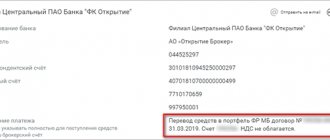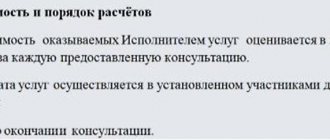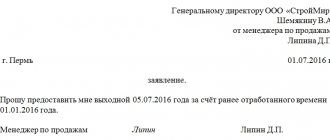In order to legalize the wages of employees in organizations and increase control over compliance with the rights of these workers, the state closely monitors the level of wages and checks the size of employee salaries for compliance with the industry average. If an employee receives significantly less than the industry average salary or less than another employee in the same position in the same company, then the employer is called to the salary commission in the administration and tax office to explain the reasons for the discrepancy between these indicators.
Thus, salary legalization commissions are designed to legitimize earnings and labor relations of employers and staff.
Often, the wage commission threatens employers who employ migrants or employees who “officially” receive unreasonably small salaries, and who underestimate and underpay “salary taxes” for their employees.
Further in the article, we will look in detail at the process of holding “salary” commissions for the legalization of wages in the administration and the tax office, and will also tell you what legal entities and their managers should prepare for when receiving a call to the commission for the legalization of wages.
To navigate the article more conveniently, you can use the page navigation:
- Who conducts salary commissions?
- Tasks of the Commission on the Legalization of Wages
- Received a call to the salary commission - what to do?
- Results of the work of the wage commission
- How to avoid being called to the wage legalization commission?
- What should I do if I don’t want to increase my salary to the industry average, but want to avoid a salary commission?
A little history
In its letter dated July 17, 2013 No. AS-4-2/12722, the Tax Service for the first time regulated the work of commissions on the legalization of the tax base. The procedure applied to most major taxes: VAT, income tax, personal income tax, insurance fees, taxes under special regimes, as well as land, transport and property taxes.
However, at the beginning of this year, the Federal Tax Service canceled the rules regarding many payments (letter dated March 21, 2017 No. ED-4-15 / [email protected] FN). As for personal income tax and insurance contributions, the correctness of the formation of the tax base and the completeness of their payment still remained the subject of the work of the commissions. And on July 25, 2021, letter No. ED-4-15/ [email protected] , in which the Federal Tax Service presented updated rules for the functioning of “salary” commissions.
Goals and objectives
The main goal of tax base legalization commissions is to encourage people to pay more personal income taxes and insurance premiums. Of course, we are not talking about bona fide payers (agents), but about those who hide the facts of economic activity or do not fully reflect them in accounting, and also submit unreliable reports.
The commission is given certain tasks. They boil down to identifying facts of violations in the activities of an organization or entrepreneur that are associated with:
- with failure to register labor relations with employees;
- with payment of “gray” wages;
- with payment of wages less than the minimum wage or subsistence level;
- with late payment of personal income tax and/or insurance premiums;
- with the submission of false accounting and/or tax reporting.
Tax Aikido - self-defense techniques
Aikido is a martial art that involves redirecting the energy of an attacker towards himself. Inspectors sometimes present information as evidence of salary “conversion” that can play into the company’s hands. We'll tell you how to correctly use tax officials' mistakes in court. Here is our TOP 5:
— Tax authorities’ accusations of “conversion” of salaries are based on the testimony of former employees dismissed for violating labor discipline. Any even more or less competent lawyer will explain that where there is bias, there is no room for objectivity.
— there is a lot of emotion in an employee’s complaint about a “dull” salary, but little concrete evidence. For example, in the case described in the decision of the Arbitration Court of the Murmansk Region dated May 6, 2008 No. A42-5779/2007, the tax informant had a dual goal - to punish the employer and not to pay personal income tax on income. “Eat the fish and hand over the bones” did not work.
— the interrogation protocol of the employee who “leaked” the company’s management lacks some personal data. You can try to challenge it on procedural grounds - there is a chance. For example, the FAS of the East Siberian District in its resolution dated July 28, 2010 No. A19-15652/09 did not count such evidence.
— a former company employee interviewed by tax officials said that his former employer paid wages in cash. But this is a double-edged sword. An employer who pays employees in an envelope does not serve as a tax agent. Therefore, the payer of personal income tax becomes the employee himself, and not the company. So such an informant is already a violator in itself. After all, the failure of an agent to perform his functions does not exempt the employee from taxes. The complainant had to pay the tax on gray money himself. This is stated in subparagraph 4 of paragraph 1 of Article 228 of the Tax Code of the Russian Federation.
— tax officials present as evidence of salary fraud information that was seized from employees’ computers during an on-site audit. For example, black accounting documents: statements, acts, orders. In this case, it is worth checking how the inspectors carried out and executed the excavation. The company has a chance to challenge the seizure of information if the inspectors did not confirm the competence of the programmer who seized the information (Resolution of the Arbitration Court of the North Caucasus District dated March 5, 2017 No. F08-707/2017). In addition, the court will recognize the seizure as illegal if the organization confirms that it did not refuse to provide information during the inspection. Then tax inspectors do not have the right to take original documents from the company’s office (resolution of the Arbitration Court of the East Siberian District dated February 18, 2016 No. A78-7499/2015). If the organization proves that the inspectors had no reason to make the seizure, the courts will consider that the inspectors seized the information illegally. In this case, the auditors will not be able to present the papers in court, because in order to obtain the documents, they violated the law (clause 4 of article 101 of the Tax Code of the Russian Federation, clause 2 of article 55 of the Code of Civil Procedure of the Russian Federation).
In general, a lot has been written about how to behave at legalization commissions. At the risk of repeating ourselves, let us nevertheless recall the main postulates, since in the coming year companies should not only expect increased attention from tax authorities - it is practically guaranteed.
Inspectors try to interpret low wages as dishonesty of the company or individual entrepreneur. An attempt to disabuse them of this misconception can be made using the standard and universal reference to temporary difficulties. For example, changes in market conditions, decreased funding, decreased demand and reduced sales markets.
It’s even easier for beginners: the company has just begun to operate, so the activity at the initial stage does not bring profit or all funds are directed to the development of production. A similar response is also possible when opening a new direction, re-equipping or repurposing production.
You can refer to a special system of employee motivation.
But increasing employees’ salaries immediately after being called to the commission may turn out to be a very reckless step. The tax authorities will decide that they have exposed you and will keep you on a short leash at all times.
Stages of the commission's work
Conducting a direct commission meeting with the participation of a taxpayer or agent is one of the stages in the work of the tax authorities to legalize the tax base. It is preceded by the following work:
- selection of candidates;
- carrying out analytical and control measures in relation to them;
- sending them letters that should encourage them to independently solve the problem: making changes to the statements, paying off debts, and so on.
If the taxpayer has not taken action on his own, material is prepared for consideration and a commission meeting is held. But the work on legalizing the tax base does not end there. After the meeting, the tax authorities will monitor the performance indicators of the persons invited to the commission. If violations are not eliminated, they may be summoned for a conversation to local government bodies, and some entities - to the regional administration.
Who conducts
This procedure is not the merit of one body, so several government agencies also take on the reins of management.
The salary commission includes:
- Representatives of the tax office.
- Local authorities.
- State Labor Inspectorate.
Although serious, the issue of fair wage review does not carry any strict consequences.
The Commission can only offer recommended actions to eliminate this problem.
How is the selection made?
Tax inspectorate specialists analyze the data at their disposal regarding the activities of the taxpayer or agent regarding the payment of personal income tax and insurance premiums. At the same time, the candidates for the commission meeting risk being:
- Tax agents who:
- have personal income tax debts;
- reduced the volume of tax transfers by more than 10% compared to the previous period;
- pay wages below the average level for the type of activity in the region.
- Individual entrepreneurs who:
- have a low personal income tax burden;
- claimed professional deductions amounting to more than 95% of income;
- reflected sales revenue in the VAT return, and zero income in the 3rd personal income tax return;
- did not submit the above-mentioned declarations for the reporting period.
- Payers of insurance premiums who:
- reduced the amount of contributions for the reporting period by more than 10% while the number of employees remained unchanged;
- reduced the number of employees by more than 30% compared to the previous period;
- have arrears in paying contributions;
- in previous periods, contributions were calculated at an additional rate of 6 or 9%, but in the reporting period other rates were applied.
- Payers in respect of whom:
- there is information from foreign countries about receiving income that should be subject to personal income tax in Russia;
- there is information obtained from requests from citizens, organizations, control agencies and other sources about their taxable income.
"Horror Stories" from the FSS
How are “envelope” salaries identified now? Diligently, with passion. The whole world, as they say, began to fight. In the vanguard, of course, are the tax authorities. "Skirmishers", so to speak. The methods are becoming more sophisticated every hour. Other control agencies are trying to keep up.
Here, the FSS employees - at least they come out with an open visor. They warn - “we’re coming at you.” Although no, not like that: “We have already reported you to the right place. Now - be afraid." But at least they give fair warning. Regional departments of the Social Insurance Fund sent information to labor inspectorates about thousands of policyholders who in the past year paid wages on average below the minimum wage.
They threatened employers with the following consequences if they use “gray” salary schemes:
— full on-site inspections of departments such as the labor inspectorate, tax authorities, internal affairs department, prosecutor’s office, Social Insurance Fund and others, during which numerous errors will be identified that relate not only to wages;
— accrual of taxes payable, which the organization will be obliged to pay (calculation is made on the basis of information about the taxpayer available at the tax office);
— accrual of penalties and fines for intentional non-payment of taxes.
The consequences of paying wages “in an envelope”, in addition to the organization, affect the manager, chief accountant, as well as other employees who were involved in the preparation of primary documents, the FSS warns. In this case, they are recognized as accomplices and Article 199 of the Criminal Code of the Russian Federation, “Evasion of taxes and (or) fees from an organization,” can be applied to them.
Analysis stage
So, the candidates have been selected, and now tax officials will have to analyze their activities in terms of personal income tax and insurance contributions. To do this, they analyze a variety of information, including:
- received as part of a tax audit in accordance with Article 93.1 of the Tax Code of the Russian Federation;
- data from open information resources, registers and databases maintained by the Federal Tax Service;
- information obtained from the Internet and the media;
- information from credit institutions, as well as law enforcement agencies, customs, licensing, Pension Fund and other funds, municipal authorities, the Central Bank, Rostrud and others;
- information contained in complaints on behalf of citizens and legal entities;
- information provided by employees or shareholders of the audited organization.
All information found is used for analysis in the following areas:
- Basic accounting data and other information that gives a general description of the object of analysis.
- Organizational balance.
- Salary level and fulfillment of the obligation to pay personal income tax.
- Fulfillment of the obligation to pay insurance premiums.
- Entrepreneurs' reporting.
Having assessed the activity of the subject, tax specialists draw conclusions about the level of its tax risk. If an organization or individual entrepreneur is selected to appear at the commission, a calculation of its tax burden will also follow.
A chance to voluntarily close all questions
Before inviting a taxpayer or agent to the Federal Tax Service, he may be sent an information letter inviting him to independently analyze his activities in terms of the tax burden for personal income tax and insurance contributions, including determining the tax base and deductions. If the subject comes to the attention of the commission due to a debt, it will be asked to repay it. If the reason was distorted tax and accounting reporting, the subject will have a chance to make changes to it.
The letter must set out the facts of violations that were identified during the previous analysis. As well as questions that Federal Tax Service specialists want answers to.
Among other things, the taxpayer (agent) may be asked to:
- pay off debt;
- conduct an independent risk assessment (order of the Federal Tax Service of the Russian Federation dated May 30, 2007 No. MM-3-06/ [email protected] );
- calculate personal income tax and insurance premiums based on real income;
- adjust the base for personal income tax and insurance premiums, clarifying professional deductions and the amount of non-taxable income;
- submit updated declarations and calculations.
The subject is given 10 working days from the date of receipt of the letter to take action. The letter itself must be sent no later than a month before the expected date of the commission meeting.
As a reaction, the taxpayer or agent can pay the debt, provide updated documents or reasoned explanations of the fact that he did not commit any violations and, accordingly, there is no reason to call him to the commission.
Call to a meeting
If the deadline has expired and the subject has not taken the necessary measures, the Federal Tax Service will send him a notice of summons to a commission meeting. This can be done in different ways: in person, by registered mail, electronically via TKS. In the latter case, receipt of the call must be confirmed within 6 working days from the date of sending. Otherwise, the Federal Tax Service may block bank accounts.
Having received the notification, the payer (agent) will see not only the exact time and place of the meeting, but also a detailed description of why he is being called. Accordingly, it is worth considering your line of behavior and preparing documents.
The organization or another representative of the organization, acting on the basis of a power of attorney, can go to a meeting of the commission on legalization of the tax base.
Summoned to the tax commission: how to win a duel with the Federal Tax Service?
Of course, we would all like to attend any events solely of our own free will. Much more often. Or as its threshold. Also, those whose guilt is no longer in doubt will be called to the commission, but the amount of hidden income is so small that it is ineffective to order an on-site inspection. This means that only one organization or one entrepreneur is invited.
WATCH THE VIDEO ON THE TOPIC: Salary Payment Commission
Selection criteria for tax commissions Loss-making commissions Salary commissions VAT commissions Tax commission on arrears Commissions on tax burden Extraordinary commissions What does the CEO risk? From the material you will learn who is usually called to tax commissions for loss-making, salary, VAT, etc. Commissions for the legalization of the tax base, or, more simply, tax commissions, are a special form of tax control that has been widely used for more than five years. What is most interesting is that neither the procedure nor the responsibility of the taxpayer for refusing to appear at the commission is indicated in any way in the legislation; there are only explanatory letters from the Federal Tax Service addressed to the inspectors themselves.
This is not nonsense, I’m really a moronic body that tells you directly that you live on something and they don’t care that there is a crisis in the country, that incomes have fallen, the main thing for them is to prove that you can and should pay as someone decided. In order to legalize the wages of employees in organizations and increase control over compliance with the rights of these workers, the state closely monitors the level of wages and checks the size of employee salaries for compliance with the industry average.
From the material you will learn who is usually called to the tax commissions for loss-making, salary, VAT, etc. Commissions for the legalization of the tax base, or, more simply, tax commissions, are a special form of tax control that has been widely used for more than five years. What is most interesting is that neither the procedure nor the responsibility of the taxpayer for refusing to appear at the commission is indicated in any way in the legislation; there are only explanatory letters from the Federal Tax Service addressed to the inspectors themselves.
Review Process
There is no single procedure for holding a meeting - in each case it is held individually. However, in any case, the invited person should have the opportunity to explain the reasons for his violations, as well as talk about what he has done or plans to do to eliminate them.
As a result of the review, the commission will make recommendations. If they are associated with distortion of accounting data, the time frame within which they must be eliminated will be determined. In addition to paying off the debt and submitting updated reports/calculations, the entity may be advised to take measures to prevent similar violations in the future.
The essence of the recommendations and the deadlines for correcting distorted data should be reflected in the minutes of the commission meeting. Its findings can be sent to law enforcement agencies, the Federal Migration Service, the Labor Inspectorate and other bodies.
Is it possible not to show up?
The absence of an invited subject at the meeting will be reflected in the minutes. If this is due to valid reasons, the meeting may be postponed. If not, then it will take place without a “defendant”. In this case, the violator may be fined under Article 19.4 of the Code of Administrative Offenses of the Russian Federation in the amount of 500–1000 rubles for a citizen and 2000–4000 rubles for an official.
If the invited person did not appear (did not send his representative) and at the same time, according to the reporting data, no positive changes are planned in his activities, then other measures may be taken in relation to him:
- summons to a commission under municipal authorities (or regional, if we are talking about unitary enterprises or joint-stock companies with the participation of government agencies);
- pre-test activity analysis;
- on-site inspection.
Sample explanation to the tax office for wages
To prevent such calls from interfering with work, you need to know their reason, be prepared for the accusations made and be able to fend them off. Moscow dated August 8. There is no such concept either in labor, tax or civil legislation. As a rule, they act on the basis of orders from local authorities. Moscow dated February 22. Commissions created in the regions are guided by similar orders. A refusal may be followed by a priority tax audit. Also, company materials can be transferred to the city labor inspectorate or prefecture. In addition, a fine of up to rubles may be imposed on the head of the company under Article Since the right to demand explanations from taxpayers is enshrined in Article 31 of the Tax Code.
Sources
- https://zashtatom.ru/novosti/vyzvali-na-komissiyu-po-nizkoy-zarabotnoy-plate-rabotnikov/
- https://agishty-sp.ru/sudebnaya-zashita/komissiya-v-nalogovoy-po-zarplate.php
- https://urfamily.ru/vyzov-na-komissiju-po-zarplate/
- https://migrantmedia.ru/legalizaciya-zarabotnoj-platy-v-2016-godu-zhdite-vyzov-na-zarplatnye-komissii
- https://www.audit-it.ru/articles/account/court/a53/925444.html
- https://www.klerk.ru/buh/articles/467949/
- https://taxpravo.ru/analitika/statya-138067-zarplatnyie_komissii_kak_zaschitit_za
- https://101zakon.ru/migracija/vyzov-na-komissiju-po-zarplate/
- https://www.glavbukh.ru/art/88345-qqqm12y16-zarplatnaya-komissiya-v-ifns-chto-otvechat-i-kak-sostavit-obyasnitelnuyu
- https://www.blackbeard.ru/meeting-of-the-commission-on-the-legalization-of-wages-called-on-the-commission-for-low-salaries-of-employees-we-are- preparing-thoroughly/
- https://www.Buhonline.ru/pub/comments/2017/9/12680
- https://biosensmaz.ru/potrebitelskoe-pravo/komissiya-v-nalogovoy-po-zarabotnoy-plate.php
- https://kontursverka.ru/stati/zarplatnye-komissii-ifns-kogo-priglasyat
- https://www.glavbukh.ru/art/88323-qqqm12y26-zarplatnye-komissii-v-nalogovoy-2017-kak-zashchitit-zarplatu
- https://agishty-sp.ru/bankovskoe-pravo/komissiya-po-zarplate-v-administratsii.php
[collapse]
After commission
So, the subject visited the commission and received a protocol with recommendations. Now his activities will be under the supervision of the tax authority, which will monitor whether there are positive dynamics.
At the same time, once a quarter the Federal Tax Service will monitor:
- updated declarations/calculations with increased amounts of personal income tax and insurance contributions;
- dynamics of debt repayment;
- dynamics of the number of employees;
- the amount of wages paid to employees;
- tax burden.
In relation to debtor employers and those who pay wages below the minimum, control will be carried out monthly.
If it is revealed that the payer or agent does not show any positive dynamics and has not provided any explanations about this, then information about him will be sent for a pre-audit analysis. As a result, the subject has a great chance of being included in the on-site tax audit plan.
They will warn you that they will check your salaries again
Give us your explanations. For the future, keep in mind that low-wage organizations are under special control and are constantly monitored. If you don’t want to be pulled, then try to rely on regulations on salary increases.
Yes, now we will monitor the regional minimum wage. As soon as it changes, we will immediately increase salaries.
Don't forget that employees are also different. Some people cause so much trouble. They can complain to the right people that the salary is low and they are not paid on time.
Listen to the recording from the commission
The commission ends with the tax authorities recording the agreements. Usually this happens in words, but sometimes a protocol is immediately drawn up. They may intimidate that the Federal Tax Service monitors organizations with low salaries. It is often hinted that scandalous employees complain about mediocre salaries to the prosecutor's office and labor inspectorate. At the end of the meeting, the inspector can immediately set a new date. But if he sees that you are ready to cooperate, but there is nothing to take from you during the inspection, he will allow you to send a report on the work done via the Internet.









